References: (click on the names of
the authors to get a summary of the research paper)
- Mehr et
al., Two Randomized Trials Provide No Consistent Evidence for
Nonmusical Cognitive Benefits of Brief Preschool Music Enrichment (2013)
- Bridgett,
D.J. and Cuevas, J. Effects of listening to Mozart and Bach on the
performance of a mathematical test. Percept Mot Skills, 90:1171-1175, 2000
- Carlson,
S., Rama, P., Artchakov, D. and Linnankoski, I. Effects of
music and white noise on working memory performance in monkeys.
Neuroreport, 8:2853-2856, 1997.
- Creutzfeldt,
O. and Ojemann, G. Neuronal activity in the human
lateral temporal lobe. III. Activity changes during music. Exp. Brain
Res., 77:490-498, 1989.
-
McCutcheon, L.E. Another failure to generalize the Mozart
effect. Psychol. Rep., 87:325-30, 2000.
- Ramos,
J. and Corsi-Cabrera, M. Does brain electrical activity react
to music? Intern. J. Neurosci., 47:351-357, 1989.
- Sala, G., Gobet, F. Cognitive and academic benefits of music training with children: A multilevel meta-analysis, Mem Cogn (2020). https://doi.org/10.3758/s13421-020-01060-2
- Rauscher,
F.H., Shaw, G.L. and Ky, K.N. Music and spatial task
performance. Nature, 365:611, 1993.
- Rauscher,
F.H., Shaw, G.L. and Ky, K.N. Listening to Mozart enhances
spatial-temporal reasoning: Towards a neurophysiological basis. Neurosci.
Lett., 185:44-47, 1995.
- Rauscher,
F.H., Shaw, G.L., Levine, L.J., Wright, E.L., Dennis, W.R.
and Newcomb, R.L. Music training causes long-term enhancement of
preschool children's spatial-temporal reasoning. Neurol. Res., 19:2-8,
1997.
- Steele,
K.M., Ball, T.N. and Runk, R. Listening to Mozart does not
enhance backwards digit span performance. Perceptual and Motor Skills,
84:1179-1184, 1997.
-
Steele K.M., Brown, J.D. and Stoecker, J.A. Failure to confirm the
Rauscher and Shaw description of recovery of the Mozart effect.
Percept Mot Skills 88:843-848, 1999.
- Steele, K.M., Bass, K.E. and Crook, M.D. The mystery of the Mozart
effect: failure to replicate. Psychological Science, 10:366-369, 1999.
- Music and
the Brain Podcasts
- 'Mozart
Effect' Dispelled: Music Study Does Not Make Children Smarter (2013)
- Pietschnig, J., Voracek, M., and Formann, A.K., Mozart
effect-Shmozart effect: A meta-analysis, Intelligence, 2010; 38 (3):
314 DOI: 10.1016/j.intell.2010.03.001
- Oberleiter,
S. and Pietschnig, J., Unfounded authority, underpowered studies, and
non-transparent reporting perpetuate the Mozart effect myth: a
multiverse meta-analysis. Sci Rep 13, 3175 (2023).
https://doi.org/10.1038/s41598-023-30206-w
|
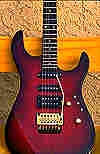
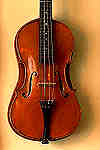




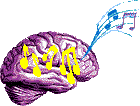
 You might like all of these types of music, you might like a few of these,
or you might not like any of them at all. Your brain somehow makes sense
of music and allows you to make the decisions about your musical taste.
You might like all of these types of music, you might like a few of these,
or you might not like any of them at all. Your brain somehow makes sense
of music and allows you to make the decisions about your musical taste.
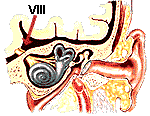







 Other laboratories
have tried to use the music of Mozart to improve memory, but have
failed. For example, one group of scientists used a test where
students had to listen to a list of numbers, and then repeat them
backwards (this is called a backwards digit span test). Listening to
Mozart before this test had NO EFFECT on the students. Apparently the
Mozart Effect depends on what kind of test is used. Other researchers have
said that the original work on the Mozart Effect was flawed because:
Other laboratories
have tried to use the music of Mozart to improve memory, but have
failed. For example, one group of scientists used a test where
students had to listen to a list of numbers, and then repeat them
backwards (this is called a backwards digit span test). Listening to
Mozart before this test had NO EFFECT on the students. Apparently the
Mozart Effect depends on what kind of test is used. Other researchers have
said that the original work on the Mozart Effect was flawed because: 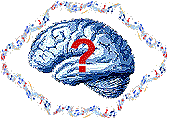 In another attempt to demonstrate the Mozart Effect,
researchers at Appalachian State University went to great lengths to
follow the exact procedures of previous studies. In the July 10, 1999
issue of Psychological Science (vol. 10, pages 366-369), Dr.
Kenneth Steele and coworkers reported that they were unable to show that listening to the music of
Mozart had any effect on spatial-reasoning performance. They conclude by
stating:
In another attempt to demonstrate the Mozart Effect,
researchers at Appalachian State University went to great lengths to
follow the exact procedures of previous studies. In the July 10, 1999
issue of Psychological Science (vol. 10, pages 366-369), Dr.
Kenneth Steele and coworkers reported that they were unable to show that listening to the music of
Mozart had any effect on spatial-reasoning performance. They conclude by
stating: 



 After 8 months of this treatment, the children were tested on their
ability to put puzzles together (spatial-temporal reasoning) and to
recognize shapes (spatial-recognition reasoning). The results were
fascinating! They found that only those children who received the keyboard
lessons had improvement in the spatial-temporal
test. Even when the children were tested one day after their last
keyboard lesson, they still showed this improvement. So, the effects of
the keyboard lesson lasted at least one day. Test scores on the
spatial-recognition test did NOT improve in any of the groups, even the
keyboard group.
After 8 months of this treatment, the children were tested on their
ability to put puzzles together (spatial-temporal reasoning) and to
recognize shapes (spatial-recognition reasoning). The results were
fascinating! They found that only those children who received the keyboard
lessons had improvement in the spatial-temporal
test. Even when the children were tested one day after their last
keyboard lesson, they still showed this improvement. So, the effects of
the keyboard lesson lasted at least one day. Test scores on the
spatial-recognition test did NOT improve in any of the groups, even the
keyboard group. Some researchers
have even tried to see if the Mozart Effect exists in monkeys! In these studies, monkeys listened to Mozart
piano music for 15 minutes before they had to do a memory test.
The researchers found that listening to Mozart music did NOT improve the
monkeys' performance compared to when the monkeys listened to rhythms or
white noise. They also found that listening to Mozart during the
test impaired memory and white noise during the test improved memory
slightly.
Some researchers
have even tried to see if the Mozart Effect exists in monkeys! In these studies, monkeys listened to Mozart
piano music for 15 minutes before they had to do a memory test.
The researchers found that listening to Mozart music did NOT improve the
monkeys' performance compared to when the monkeys listened to rhythms or
white noise. They also found that listening to Mozart during the
test impaired memory and white noise during the test improved memory
slightly. So, if people want to improve
their intelligence should they run out and buy some classical music?
Should children start piano lessons when they are young? You are sure to
get some beautiful music, but there is no conclusive evidence that it will
improve your intelligence. Also, there is no evidence that music enhances
memory permanently. More research and testing needs to be done to see if
and how music and memory interact.
So, if people want to improve
their intelligence should they run out and buy some classical music?
Should children start piano lessons when they are young? You are sure to
get some beautiful music, but there is no conclusive evidence that it will
improve your intelligence. Also, there is no evidence that music enhances
memory permanently. More research and testing needs to be done to see if
and how music and memory interact.
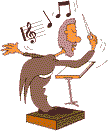



![[email]](./gif/menue.gif)


